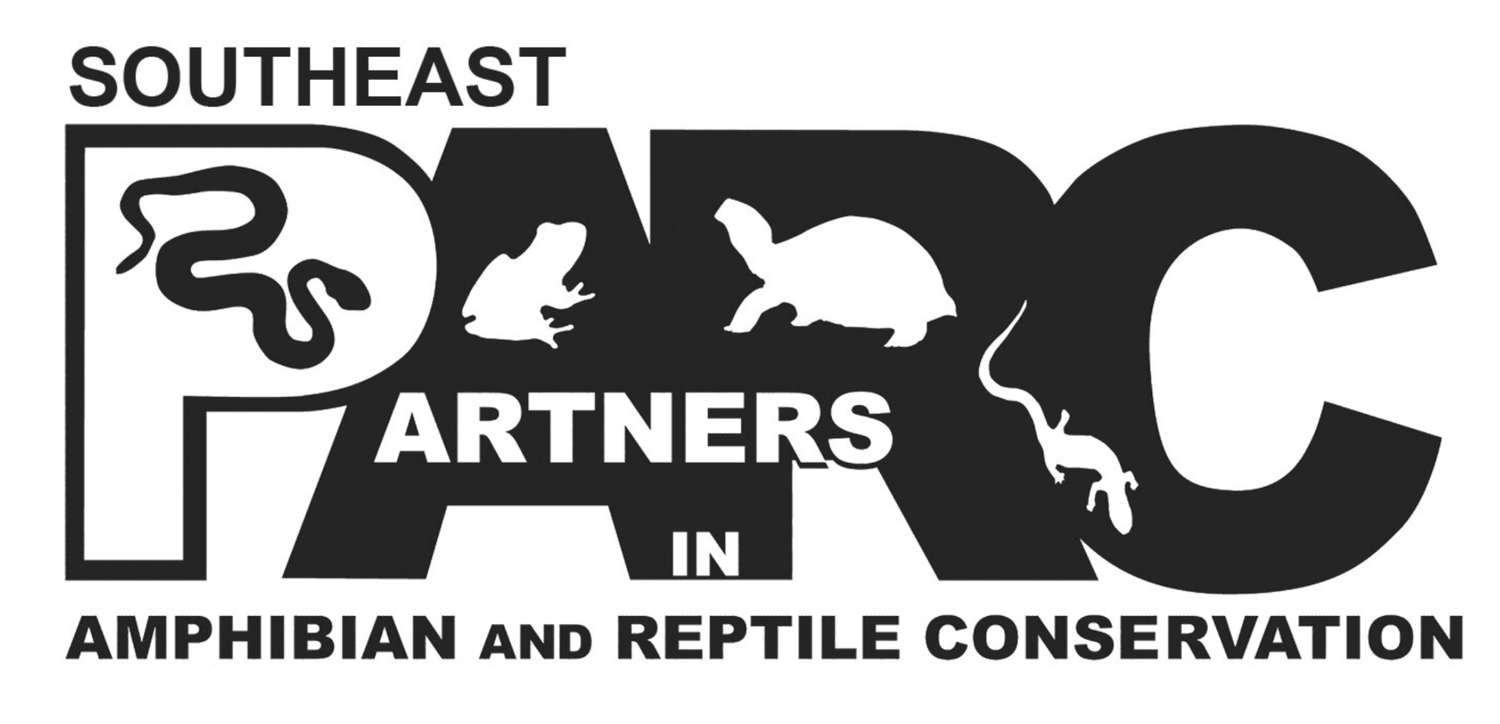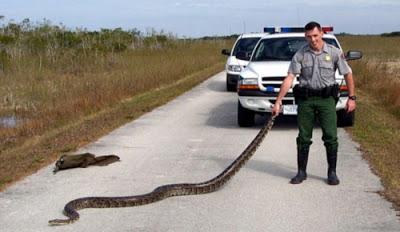What to Do With Unwanted Pet Amphibians and Reptiles
Pet pythons were released into the Florida Everglades and eventually established resident populations. They are now eating their way through the ecosystem, decimating the native species.
This page was created by SEPARC's Invasive Species Task Team, in collaboration with the University of Florida IFAS Extension, and provides some useful guidelines for what to do if you can no longer care for a pet amphibian or reptile. You may download a printable brochure of this entire page.
If you must part with the pet, please consider these guidelines for safe ways to part with it. Above all, you should never release it into the wild. If you do, the result can be disastrous. The picture to the right shows an example of what can happen.
Keep It
If you are at your wits end because your pet reptile is too difficult to handle, getting some advice from an expert may help. Visit Melissa Kaplan's Herp Care Collection website (see the Helpful Resources Online section below) to find fact sheets with advice on dealing with behavioral problems and keeping your pet healthy.
Return It to the Pet Store
If behavior is not an issue, and you are simply no longer able to keep your pet, contact the pet store where you purchased it. Because of the recent media attention on the problems caused by pet releases, many pet stores may be willing to take back unwanted pets, rather than risk having it set free. However, you probably won't get your money back!
Find It a New Home
The best option for dealing with an unwanted pet (if you can't return it to the pet store), is to find it a new home. Use the resources listed here to locate reptile rescue groups, herpetological societies, and animal shelters - they will try to help you to place your pet in a new home. You can also post a newspaper or internet ad or post fliers at local pet stores or animal shelters. Contact local science teachers and nature centers - they may want a classroom pet.
Contact Animal Control
Animal control agencies are usually only equipped to take mammals, but some may be able or willing to help or offer advice. However, they probably don't have a no-kill policy.
Contact Your State Fish and Wildlife Agency
While these agencies are not set up to take in unwanted pets, contacting them for advice is always better than breaking wildlife laws and risking fines by turning your unwanted pet loose outside!
Euthanasia
Euthanizing a pet is never an easy choice. However, if you cannot find anyone to take your pet, you may have to consider humane euthanasia by a qualified veterinarian. You should not release a pet into the wild under any circumstances.
Green Iguanas can be difficult to handle and even harder to place in new homes. Unfortunately, euthanasia may be the only option for these common pets.
Some tortoises grow very large. Your local herp society may be able to help you find a new home for these “specialty” pets.
Think Before You Buy
Reptiles and amphibians are popular pets for many reasons. However, some make poor pets because they grow large and require special cages or they become difficult to handle. Many reptiles are long-lived and require a much longer commitment for care than a dog or cat. Prior to purchasing a pet reptile or amphibian, be sure you fully understand how big it will get, how long it will live, and its current and future caging and feeding requirements. Ask yourself, “Is this the best pet for my situation, or should I consider a different one?” Unfortunately, many well-meaning pet owners choose to release their pets into the wild when they tire of the animal or are no longer able to care for it. In addition to being against state laws, releasing a pet is unethical because many of these animals die. However, some released pets beat the odds and survive, and some even find mates and reproduce. These non-native animals can cause serious harm to the environment and our economy. If at some point you are no longer able to care for your pet reptile or amphibian, you have several options that are discussed here - releasing it is NOT one of these options. Never turn a pet reptile or amphibian loose outside.
Helpful Online Resources
- Melissa Kaplan's Herp Care Collection website offers resources on herp care and behavior and lists herp societies and rescue groups.
- The Association of Fish and Wildlife Agencies website provides a list of Fish and Wildlife Agencies by state.
- AnimalShelter.org provides a list of animal shelters by state. While these shelters may only be equipped to take mammals, they may have connections with local herp rescue groups who will be able to help.
- The Florida Fish and Wildlife Conservation Commission's Exotic Pet Amnesty Program is available for pet owners who can no longer care for their pets or no longer wish to keep them.
- www.separc.org (You are already here!)




